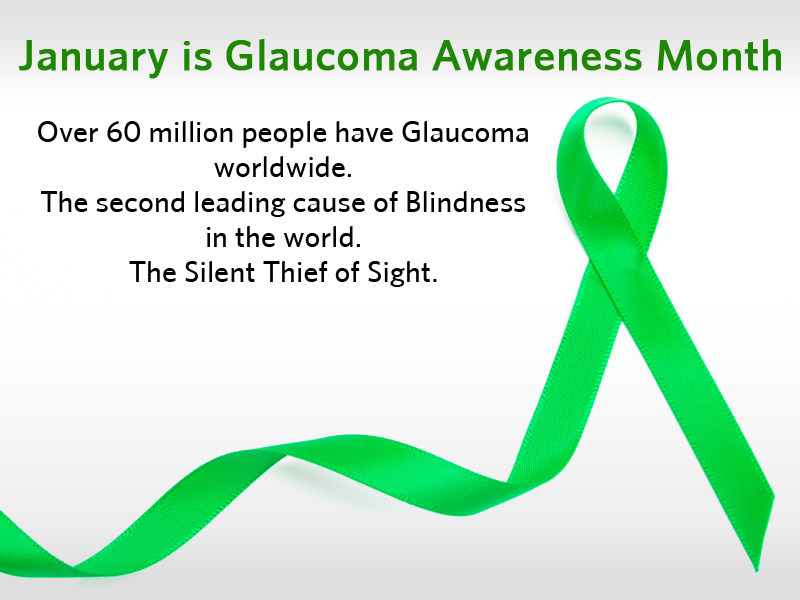Glaucoma Awareness month is January. Glaucoma is a group of eye diseases that cause vision loss because of damage to the optic nerve, the nerve responsible for carrying images from the eye to the brain.
Glaucoma is the leading cause of irreversible blindness. It is sometimes called “the sneak thief of sight” since there are no obvious symptoms and as much as 40% of vision can be lost before a person seeks medical attention. Experts estimate that half of those with glaucoma don’t even know they have it.

Although glaucoma does not have obvious symptoms before vision is lost, there are several risk factors which could make you more susceptible to glaucoma. The disease is more prevalent among African American and among Latino populations. These groups are 6 to 8 times more likely to have glaucoma than Caucasians. Other high-risk groups include: people over 60, family members of those already diagnosed, people who are severely nearsighted, and those with diabetes.
Regular eye exams are especially important for these high-risk groups. Glaucoma causes your eye pressure to increase due to fluid buildup, coupled by your eye’s inability to regulate the internal pressure. Your doctor or eye care professional will be able to determine eye pressure quickly with that little blast of air during a routine exam.
The relationship between diabetes and open-angle glaucoma (the most common type of glaucoma), has intrigued researchers for years. People with diabetes are twice as likely to develop glaucoma as are non-diabetics. Similarly, the likelihood of someone with open-angle glaucoma developing diabetes is higher than that of a person without the eye disease.
Neovascular glaucoma, a rare type of glaucoma, is always associated with other abnormalities, diabetes being the most common. In some cases of diabetic retinopathy, blood vessels on the retina are damaged. The retina manufactures new, abnormal blood vessels. Neovascular glaucoma can occur if these new blood vessels grow on the iris (the colored part of the eye), closing off the fluid flow in the eye and raising the eye pressure.
There is no cure for glaucoma. However, medication or surgery can slow or prevent further vision loss. The appropriate treatment depends upon the type of glaucoma among other factors. Early detection is vital to stopping the progress of the disease. If you have glaucoma, treatment can begin immediately when it is discovered and the amount of vision loss can be reduced. An annual eye exam is your best defense against glaucoma and its devastating effects.
